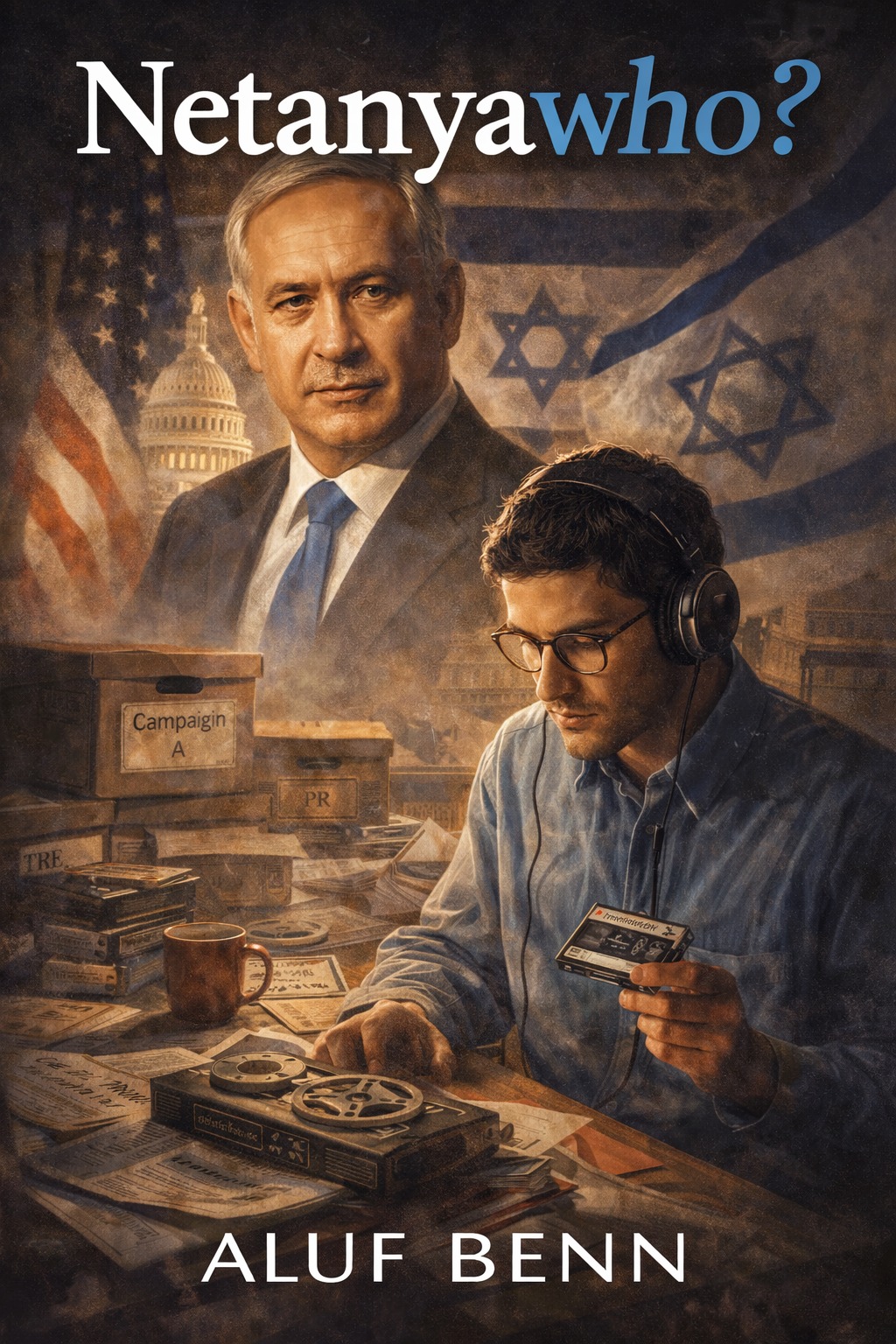Aging and reticent Jerusalem archivist Liora Carmeli has decided the sealed boxes piled in her Talbiya flat can no longer keep their silence. Inside are campaign schedules, hotel receipts streaked with espresso, and cassette tapes from smoky studios that once shaped the image of a rising politician named Benjamin Netanyahu. When Liora singles out Oren Shafir, a little-known podcaster at The Levant Ledger, to hear the story, no one is more surprised than Oren himself. Why him? Why open them now?
Oren is hardly ascendant. His partner has moved to Berlin, interviews fall through, and the newsroom coffee machine is the only thing that still hisses back. Still, he sees in Liora's invitation a hinge on which his stalled career might finally turn. He accepts a borrowed recorder, a bus pass, and the risk of being consumed by a past the country argues about at every dinner table.
From a cramped editing bay off Jaffa Road to late nights in the King David bar, Liora retraces the years when slogans, bodyguards, and satellite feeds stitched a persona that would dominate ballots and billboards from Caesarea to Washington. Along the way surface the small trades that history demands: a misfiled memo, a rehearsed shrug on Channel 1, a fundraiser in Afula where a promise hardened into policy. As the boxes empty, Oren finds the trail bends toward his own family, to his father's missing service file and a fax sent in 1996 that never arrived. The truth he chases is less a verdict than a map of what a nation chooses to remember.
